Chairman Kim Byung-joon of the faction-ridden Liberal Democratic Party
By Publisher Lee Kyung-sik
The conservative Liberal Democratic Party (LDP) has at last found a new leader, Kim Byung-joon, a professor-emeritus at Kookmin University in Seoul, as the chairman of the party's Innovative Emergency Committee.
Kim is a unique person for a conservative political party because he originally was regarded as one of the bosom followers of the progressive-oriented late former President Roh Moo-hyun, the mentor of incumbent President Moon Jae-in who was chief Presidential secretary at the time.
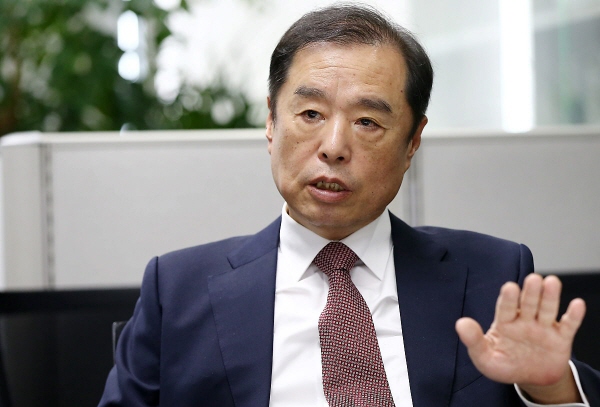
Born in Goryeong County in the traditionally conservative-strong southeastern province of Gyeongsangbuk-do in 1954, Kim received his B.A. degree from Yeungnam University in 1976, an M.A. from Hankuk University of Foreign Studies in Seoul in 1976, and a Ph.D. from University of Delaware in the United States in 1984.
Kim is obviously received well from both the conservative and progressive political camps in Korea in that the now-discredited former President Park Geun-hye, too, thought seemingly very well of Kim—to such an extent where Park designated him as her prime minister on Nov. 2, 2016. (Later, she withdrew on Nov. 8 as Kim was undecided seemingly wrecking his brain whether or not to accept the ‘wind-fall’ offer. If Kim had accepted the offer, many political observers predict that he should have had a really tough time.)
There is one thing that is very clear.
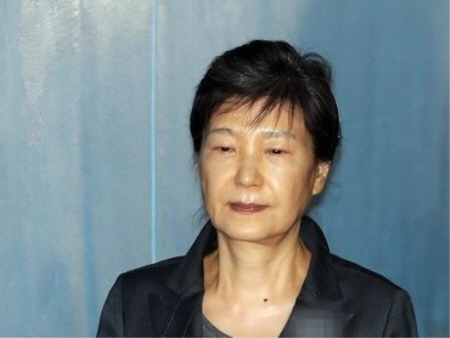
Kim is ‘liked’ by both the conservative and progressive political camps in Korea. And his final decision seemingly was, “Well, the conservatives are now in a miserable state and someone has to do something to keep them alive and going!” True, if left unattended the conservative camp might go ‘extinct’ in Korea, which could all but change the whole color of the geopolitical picture of the Far East—to speak nothing of the Korean peninsula itself.
“The right wing in Korea erred with Madam Park seemingly acquiescing in the greedy things and wrong-doings committed by Madam Choi Soon-shil who allegedly amassed enormous wealth selling the name of then President Park Geun-hye,” said a well-known former Korean-language newspaper political editor.
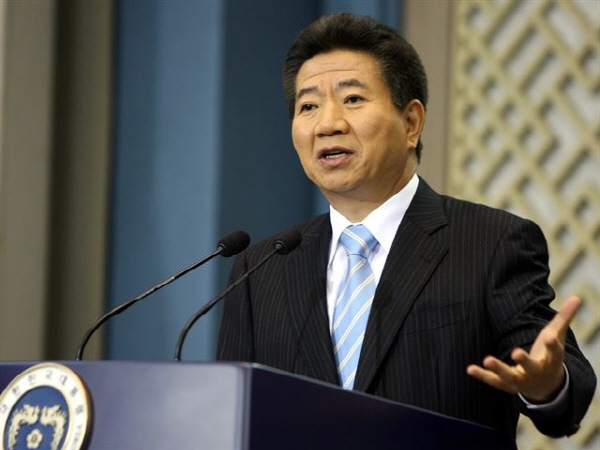
Now, apart from his association with Roh and the progressive political camp, Kim has joined the conservative political party.
Kim’s assumption of leadership of the major conservative party comes at a time when the conservative political forces in Korea are seen as good as ‘dead’ due to the mistakes allegedly made by the two conservative party Presidents, Park Geun-hye and Lee Myung-bak.
“Is the conservative political camp in Korea really dead?” This question is very often asked among many people around the world to speak nothing of the Koreans themselves.
Traditionally, the Korean people are conservative-oriented—the so-called ‘right-wing’ people forming the majority.
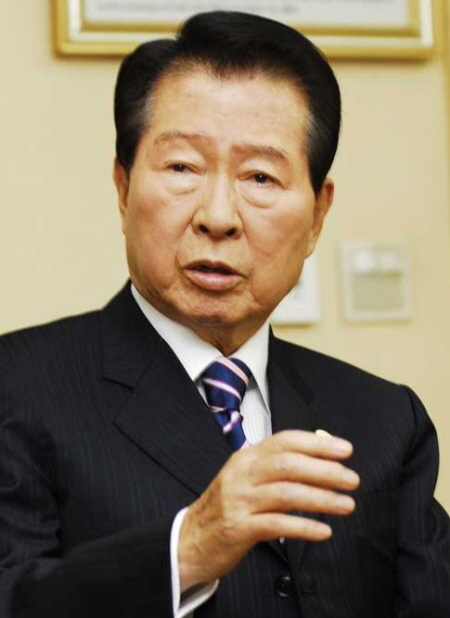
However, in the last Presidential election, the conservative candidates suffered a humiliating defeat mainly due to the wrongdoings allegedly committed by former President Park Geun-hye of the conservative Saenuri Party and his predecessor President Lee Myung-bak who is also under detention on charges of receipt of bribes and on a number of other charges of suspected involvement in crimes.
So, again, is the conservative political camp in Korea really ‘dead’?
In the opinion of many people, it is not true and in the depth of the mind of the people in Korea the Korean people are conservative and want to remain a good friend of the Free World—to speak nothing of their friendship and trust in the free democratic in the United States and the rest of the Free World.
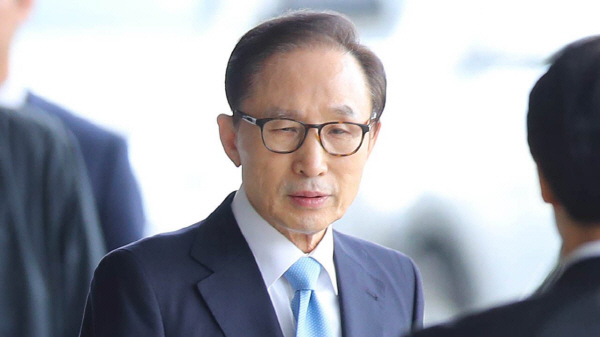
The conservative camp in Korea needs a thorough clean-up to rid itself of the bad names it has incurred during the governments of Madam Park and the construction business leader-turned former President Lee M.B.
The loss of fame on the part of former Presidents Park and Lee has also brought a substantial degree of damage to the ‘miraculous’ economic growth and development achieved initiated by the late President park Chung Hee and followed by his successors Presidents Chun Doo Hwan and Roh Tae-woo.
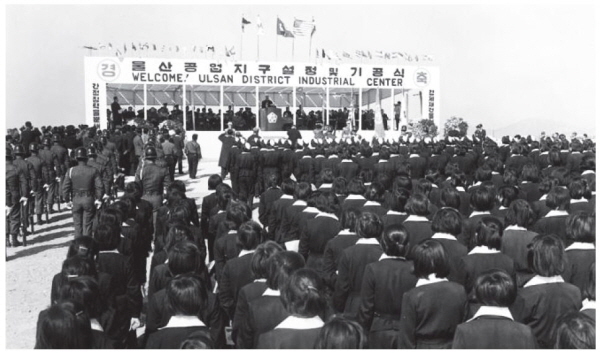
In the process of political, economic and social transition in Korea from the dire post-World War II period shortly after her liberation from Japan in 1945, the per-capita GNI in the Communist North Korea was around US$150 and that in the Free Republic of Korea (south) was some $78, which was one half of that of the North. So, at the time the people in the Communist North Korea had a twice better living than the South Koreans.
Now, the latest figure of the per-capital GNI of the South is US$29,745 (2017) while that of North Korea is US$666.9 (2016).
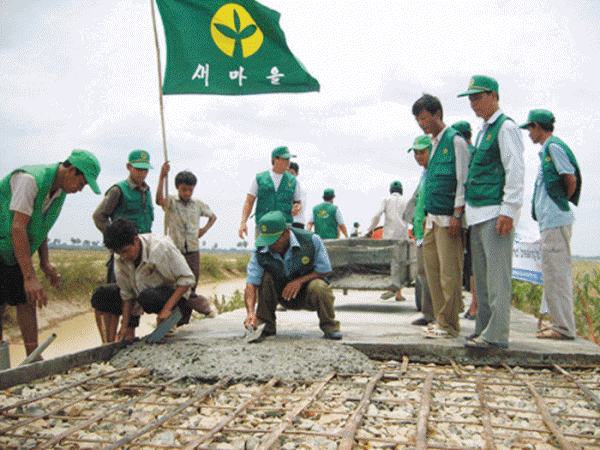
The majority of people in the South believe that it was possible thanks to the economic development policies initiated and carried out by the late President Park Chung Hee (father of former President Park Geun-hye). The late President Park literally turned the tide of economic situation in the ROK from a poverty-stricken one to a fast-growing economy.
The succeeding Presidents Chun Doo Hwan and Roh Tae-woo carried on the fast economic growth policies initiated by Park and achieved a measure of success.
Then came in the liberal democratic governments of the late former Presidents Kim Dae-jung and Kim Young-sam and then the progressive-oriented government of the late President Roh Moo-hyun.
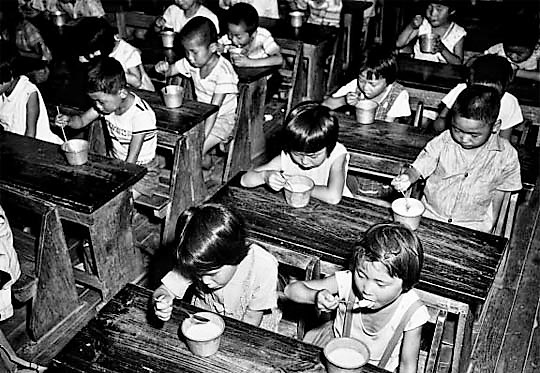
The liberal-minded Presidents Kim Dae-jung, Kim Young-sam and Roh Moo-hyun all posed a striking contrast with the Army General-turned Presidents Park Chung-hee, Chung Doo-hwan and Roh Tae-woo in the way they followed in the management of the economy of the country. The two Kims and Roh MH followed more or less liberal policies compared with Park, Chun and Roh TW.
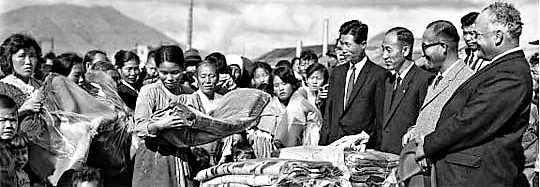
In the opinion of many people in Korea, it was possible for the three liberal Presidents to do so mainly thanks to the good measure of economic development and prosperity attained during the period of the preceding Presidents who ruled the country all during the economically difficult periods, especially Park Chung-hee who is credited with a miraculously fast economic development. When he took over the control of government by Military Revolution (coup d’etat) in 1960 the per capita GNI was exactly US$79 which progressively and rapidly grew to US$1,676 when he died assassinated by his own Central Intelligence Agency Director Kim Jae-kyu on Oct. 26, 1979.
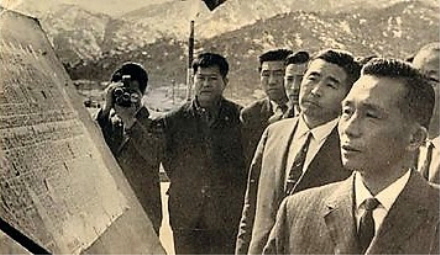
Thence forth, the Korean economy has continued to grow by rapid speeds until today when the per-capital GNI is approaching US$30,000.
Now what will happen in terms of economic development and growth under the government of President Moon Jae-in?
Many Koreans view him as they do liberal-minded President Kim Dae-jung and liberal-progressive-oriented President Roh Moo-hyun.
(Incidentally, President Moon was the Chief Presidential Secretary to Roh.)
However, good many people are suspecting that Moon may be surrounded by extremely progressive-minded aides and that Moon may feel indebted to them for his successful election as the President after Madam Park.
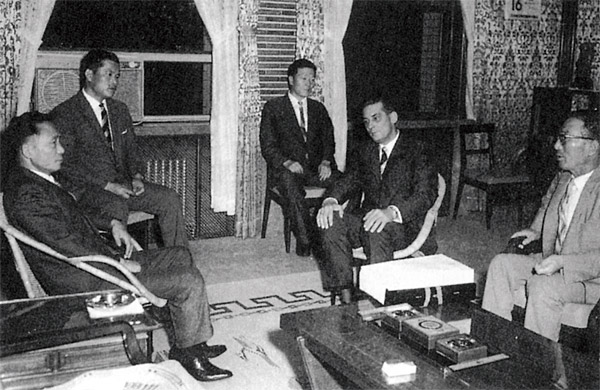
However, many people believe that it was not so much the ‘prime-movers among the candle light-bearing demonstrators’ such as the many lieutenants Moon has around him today who really brought down the government of President Park.
The grassroots were discontented with the way Park (and her predecessor Lee, for that matter) handled the affairs of the state, especially Park during whose rule the discredited woman influence peddler Madam Choi Soon-sil ‘took the law and government into her own hands’ and allegedly amassed wealth through illegal and dishonest means.
In this situation, the conservative camp is badly split between the die-hard followers of Park and Lee MB and the reform-minded right-wing politicians.
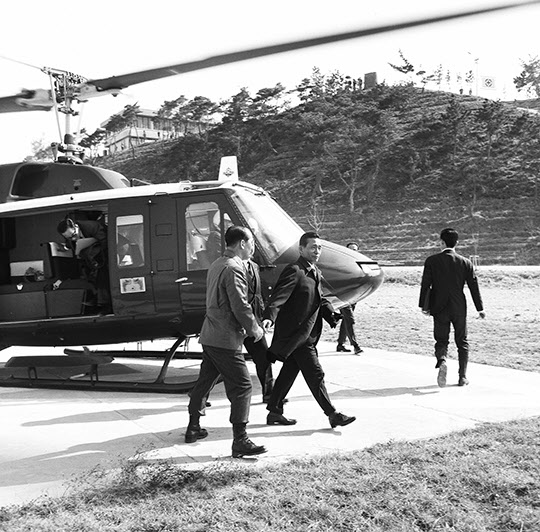
At this juncture recently appeared Rep. Kim Byung-joon as the new leader of the faction-ridden LDP.
Unlike most of his predecessors, Kim seems to have the support of the party from both the reform-minded leaders and the conservative loyalists of former Presidents Park and Lee.
It is too early to predict if Kim will succeed in leading the party brining harmony and cooperation between the pro-Park faction and the reformist group. However, many people believe that Kim will succeed because now there is no other way for the very survival of the conservative camp.
At this juncture, there appeared interesting editorials from popular Korean daily newspapers, one from Kyunghyang Shinmun and the other from Joongang Ilbo.
In the opinion of many people, Kyunghyang leans more toward the government and party of President Moon and his followers, while Joongang is a conservative-oriented newspaper. Here are excerpts from the published opinions of the two Korean-language newspapers:
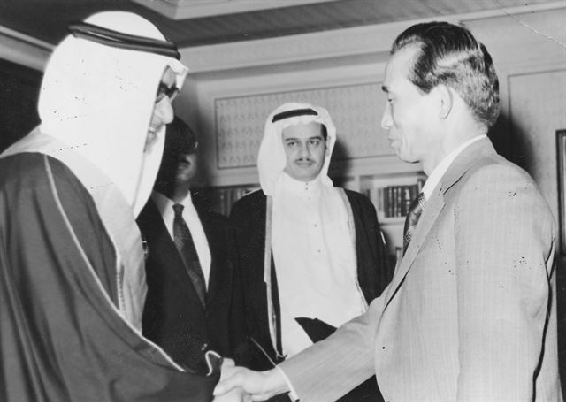
Excerpts from the editorial of Kyunghyang Shinmun (July 18, 2018):
On July 17, the Liberty Korea Party (LKP) confirmed Kim Byung-joon, professor emeritus of Kookmin University, as the chairman of the party's innovative emergency committee. When Kim appoints the members of the committee and officially receives confirmation on July 24, the party will launch the emergency committee.
LKP, which had been entangled in a battle for power instead of reflecting on their mistakes after the devastating defeat in the June 13 local elections, will at last be able to work to rebuild the party with the emergency committee.
Considering how the party members had engaged in a shameless battle of factions to secure their vested interests while on a sinking ship, we find ourselves questioning whether Kim Byung-joon and the emergency committee will be able to pave the road to party reforms and a reshuffle of the party's leadership, which is bound to be painful.
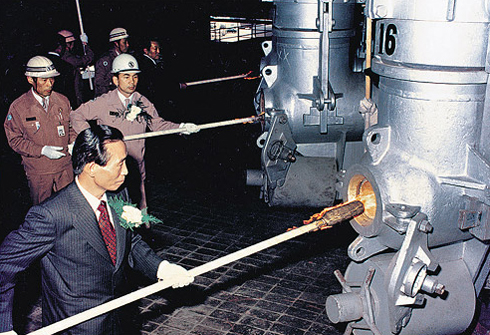
Already, the pro-Park members and the non-Park members are clashing on the authority of the emergency committee: one side wants the committee to simply manage the party, while the other side wants to grant the committee full authority over the party.
They cannot guarantee the success of the committee, even if they grant it full authority to reshuffle the party's leadership. If the party simply creates an emergency committee in name only by reaching a compromise between the factions, the result will be obvious. The party will end up just changing the sign on the party building and feign reforms as it had when faced with a crisis in the past.
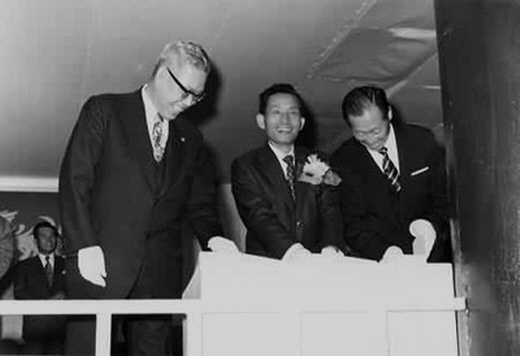
The majority opposition party, which claims to be at the center of conservative politics, currently receives an approval rating of 10%, similar to the (ultra-progressive) Justice Party, which only has six seats in the National Assembly. This is the current address (situation) of the LKP.
The party failed to truly reflect on its mistakes or seek change despite having been "impeached" in the local elections. It simply engaged in a battle of factions stained with rash words and ugly actions. No wonder the citizens have turned their backs to the last ray of hope.
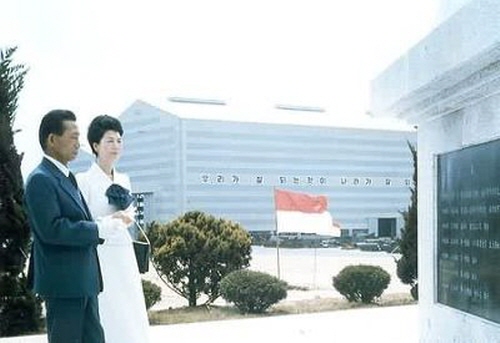
The road that the newly launched emergency committee must travel is clear. It is most urgent for the party to reshuffle its leadership not to mention getting rid of the factions that have gnawed away at the party--the pro-Parks, non-Parks, former members of the Bareun Party, and members who had remained faithful to the party throughout.
If the party ends with a one-time "reform show" by showing the people the same old thing, perhaps changing the face of the party without any changes to the party's leadership, then they will simply end up as the same old Liberty Korea Party.
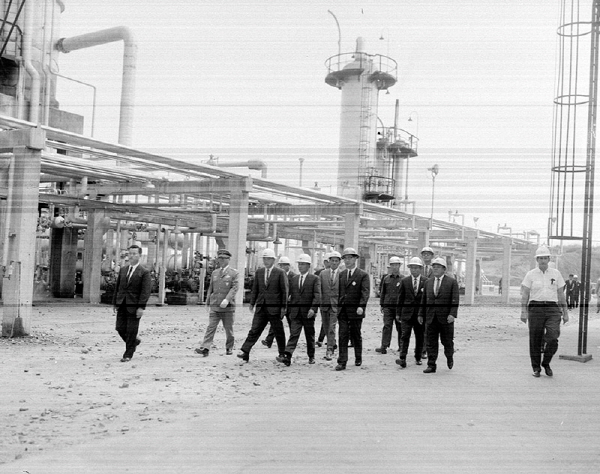
They need to break away from the old practices of the conservatives and tear down the old ideological framework of the party. They should reflect on their regressive ways, picking fights over age-old ideologies when the leaders of North Korea and the United States met to discuss peace on the Korean Peninsula, and newly establish conservative values.
Needless to say, the party will need to seek new people to pursue the new conservative values. They need to be willing to create a completely new party by letting go of vested interests and adjusting their ideology, route, and people in order to seek an exit from the current situation.
Given the incoherent and gang-like behaviors of the LKP in the past, resistance is expected to be fierce, but without painful innovation, the party will never make a miraculous recovery.
Excerpts from editorial of Joongang Ilbo July 20, 2018
Kim Byung-joon, a professor at Kookmin University who advised former President Roh Moo-hyun on policy while President Moon Jae-in was his chief of staff, found himself in hot water as soon as he took on the role of restoring the fractured main opposition Liberal Korea Party.
A local media outlet suggested Kim had violated the antigraft law for playing a pro versus amateur game during the KLPGA tour at Hi-1 Resort at the invitation of then CEO of the resort and Kangwon Land casino operator Ham Seung-huie in August last year.
The police embarked on an investigation in March upon a tip from an insider at Kangwon Land, who claimed the bill for the golf, souvenir gift and meal would have come to 1.18 million won ($1,043). Under the antigraft law, public teaching posts and media organization employees fall under the ban on accepting gifts and entertainment from private corporations and individuals beyond a certain threshold, just like public service officers.
The LKP has persuaded Kim to accept the role of overhauling the conservative party following its crushing defeat in the June 13 local elections after a desperate search for a reform-minded and respected figure. It is a pity that its choice has come under controversy for illegal graft. Kim explained that he played golf just once because the sponsor claimed the bill wouldn’t exceed the 1 million won legal threshold. Ham also denied any illegality, claiming the golf fee cost around 600,000 won per guest.
But why was a professor of public administration invited to a golf event sponsored by a casino operator? Moreover, he should have thought again about the freebie and checked whether the invitation violated the law.
The police response is also questionable. The internal investigation that it embarked on four months ago was leaked to the press after the accused person was named the interim head of the main opposition. If the information came from the police, a political motive could be suspected.
The police dragged their feet on the Druking scandal that involved ruling party members. Yet it moved fast to raid opposition party candidates in March ahead of local elections. The police must be transparent and fair in their investigation process.

